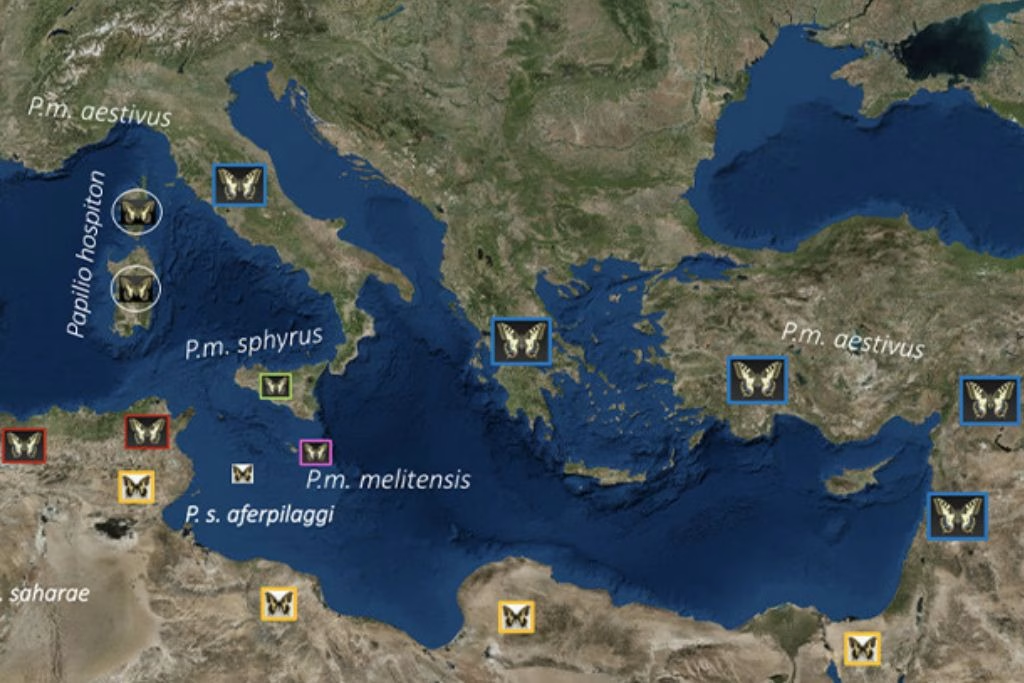
Decoding the Butterfly’s Secrets: How Genomic Data from the University of Malta Informs Mediterranean Biodiversity
The University of Malta stands at the forefront of groundbreaking biodiversity research, utilizing cutting-edge genome data analysis to unlock the secrets of the iconic Papilio machaon butterfly, also known as the Swallowtail butterfly. This research, led by Prof. Louis-F. Cassar from the Institute of Earth Systems delves into the complex genetic relationships within the Papilio machaon species complex across the Mediterranean Basin, providing crucial insights into the region’s biodiversity.
Unraveling the Complex History of Papilio machaon through Genome Sequencing
By employing whole-genome sequencing, researchers at the University of Malta have gained an unprecedented understanding of the evolutionary history and taxonomic relationships within the Papilio machaon complex. This powerful technique allows scientists to analyze the complete genetic code of the butterflies, revealing subtle variations that differentiate populations and species. The findings challenge existing classifications by demonstrating a clear distinction between northern and southern Mediterranean populations, leading to the exclusion of P. machaon from North Africa. This groundbreaking discovery reshapes our understanding of the species’ distribution and evolutionary history.
Lampedusa’s Unique Butterfly: A Testament to Malta’s Rich Biodiversity
The research also validates the existence of a distinct endemic taxon on the island of Lampedusa, previously described by Prof. Cassar and colleagues as Papilio saharae aferpilaggi. This finding underscores the importance of Malta’s geographic location as a hotspot for biodiversity and highlights the critical role of genomic data in identifying and conserving unique species. The University of Malta’s research not only contributes significantly to our understanding of the Papilio machaon but also showcases the island nation’s rich and diverse ecosystem.
The Impact of Climate Change on Butterfly Evolution
The study’s findings extend beyond taxonomy, revealing how past climatic and geological changes in the Mediterranean Basin have shaped the speciation and phylogeographic patterns of the Papilio machaon complex. By analyzing genomic data, researchers can trace the butterfly’s evolutionary journey and understand how it has adapted to environmental shifts over time. This information is crucial for predicting how ongoing climate change might impact the species and for developing effective conservation strategies.
Malta’s Contribution to Global Biodiversity Research
The University of Malta’s leadership in this research underscores its commitment to advancing knowledge and contributing to global conservation efforts. By collaborating with international institutions like the Institut des Sciences de l’Evolution de Montpellier and the Institut Universitaire de France, the university strengthens its position as a hub for cutting-edge scientific inquiry. The open-access publication of the study in Systematic Entomology further demonstrates the University of Malta’s dedication to disseminating knowledge and promoting collaboration in the scientific community. This research, funded by prestigious organizations like the European Research Council, demonstrates the global significance of Malta’s contribution to understanding and protecting biodiversity.
Looking Ahead: The Future of Genome Data in Biodiversity Research
The University of Malta’s research exemplifies the transformative potential of genome data in biodiversity research. As sequencing technologies continue to advance, scientists will be able to delve even deeper into the genetic intricacies of species, unlocking further insights into their evolution, adaptation, and conservation needs. The University of Malta is poised to remain at the forefront of these advancements, driving groundbreaking research that informs conservation efforts and safeguards the future of biodiversity in the Mediterranean and beyond. This pioneering work on the Papilio machaon serves as a model for future research, paving the way for a deeper understanding of the complex interplay between genetics, environment, and evolution.
Ready to Study at the University of Malta?
Explore your academic future at one of Malta’s leading higher education institutions. Whether you’re interested in undergraduate or postgraduate studies, fill out the form to get personalized guidance from Studygram. We’ll help you understand the programs, admission requirements, and everything you need to start your journey at the University of Malta.

